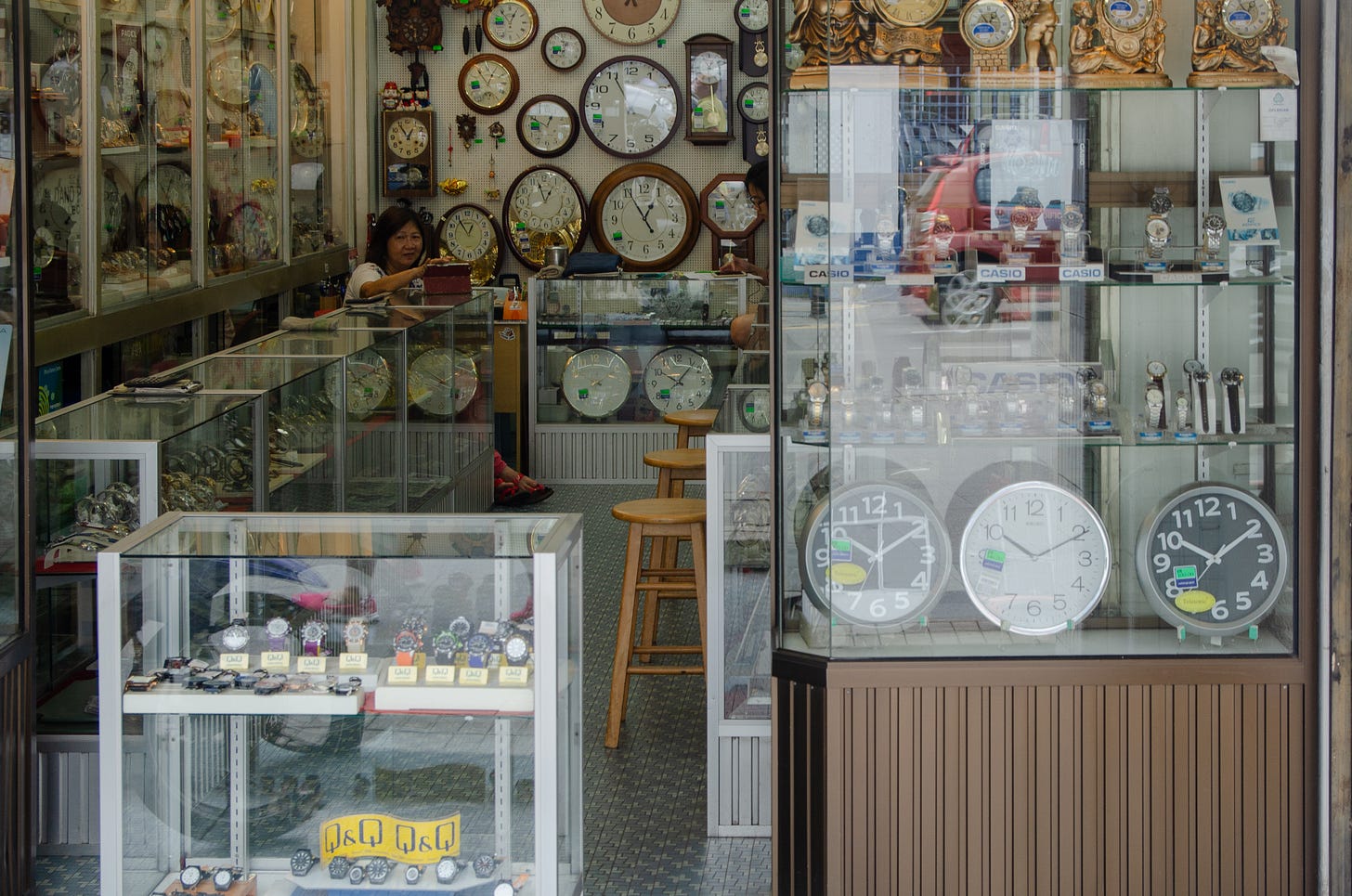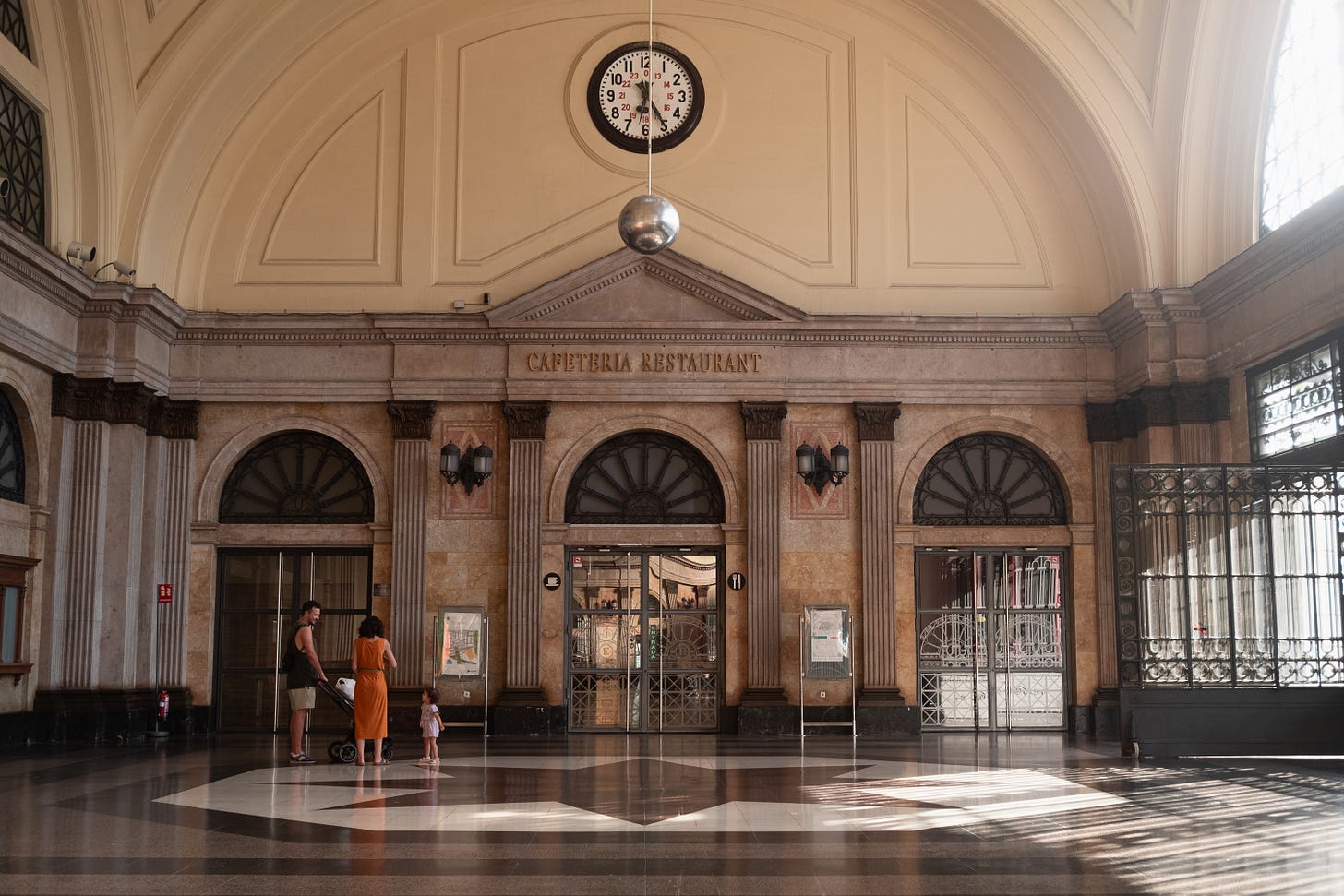Make it count: on appreciating of time
The realization that I have only 700 pizza left to eat in my life leads me to question how to make time slow down and make it count
I love pizza. But here’s the tragedy: if I live until the - optimistic - age of 90 and eat pizza once a month then I have less than 700 pizzas left to eat. That’s not many pizzas.
I was made aware of this simple calculation by the brilliant blog post on Wait But Why by Tim Urban, where he breaks down a 90 year life into weeks. It’s a bittersweet discovery: it makes me feel like I have little time left, but also makes me appreciate that time more.
This week’s post is in appreciation of time, and how to make it count.
Slowing down time
One of my favorite short films is called The Thousand Year Journey: Oregon to Patagonia. It tells the story of a writer who goes on a bicycle trip from - drum roll - Oregon to Patagonia. When asked why he is taking the trip, he says:
The routine is the enemy of time. It makes it fly by. When you are a kid, everything is astonishing, everything is new, and so your brain is awake and turned on. […] Once your brain establishes a routine, the alertness goes away.
And so he travels to keep the alertness and adventure alive.
I experience the same feeling with photography when I am in new places compared to somewhere I’ve been to many times. The latter requires more effort to notice things and not walk by while interesting subjects are in the background. This became obvious to me after my first year living in Barcelona. The things that previously caught by attention faded in the background of my day to day life.
As we grow older and settle in a routine, it becomes an active choice that requires effort to keep our minds alert. Photography helps me do just that by forcing me to seek out interesting things around me, often in streets I’ve walked passed dozens of times.
Significance changes everything
Another way I think about time, but also many other topics, is significance. This idea comes from a fascinating Ted Talk by Rory Vaden. In traditional time management, he explains, tasks are often ranked by importance and urgency. Importance is how much something matters and urgency is how soon something matters.
But there’s an important dimension missing here: significance, and significance changes everything. Significance is how long something matters.
The result is simple: play the long game, do more of what matters longer. Easier said than done.
The ideal week
In another Wait But Why post, the author shares an interesting way to think about our weeks so as the make them count.
The ideal scenario is to balance our weeks between spend time improving the future while also enjoying the present. It’s the sweet spot that offers the best of both worlds. Alternatively, focusing on either improving the long term or present enjoyment can still lead to a good week. The worst is doing neither: a week without pizza.








